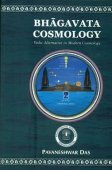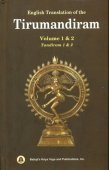Indescribable: 1 definition
Introduction:
Indescribable means something in Hinduism, Sanskrit. If you want to know the exact meaning, history, etymology or English translation of this term then check out the descriptions on this page. Add your comment or reference to a book if you want to contribute to this summary article.
In Hinduism
Yoga (school of philosophy)
Source: ORA: Amanaska (king of all yogas): A Critical Edition and Annotated Translation by Jason Birch(That which is) Indescribable is denoted by the Sanskrit term Avācya, according to the Amanaska Yoga treatise dealing with meditation, absorption, yogic powers and liberation.—Accordingly, as Īśvara says to Vāmadeva: “[...] [However,] having abandoned all this [because it is] situated in the body [and therefore limited], and having thought it to be a delusion of the mind, the wise should practise the no-mind state, which is unique, beyond the body and indescribable (avācya). [...]”.

Yoga is originally considered a branch of Hindu philosophy (astika), but both ancient and modern Yoga combine the physical, mental and spiritual. Yoga teaches various physical techniques also known as āsanas (postures), used for various purposes (eg., meditation, contemplation, relaxation).
See also (Relevant definitions)
Query error!
Full-text (+62): Anirvacaniya, Avaktavya, Shabdatita, Avarnaniya, Adapasara, Avarnya, Avarnaniy, Anirvacya, Ashastavara, Varnanatita, Avacya, Akathaniya, Akatha, Avannaniya, Akathaneey, Atigava, Kathanta, Shabdathit, Vannaniya, Akathya.
Relevant text
Search found 133 books and stories containing Indescribable; (plurals include: Indescribables). You can also click to the full overview containing English textual excerpts. Below are direct links for the most relevant articles:
Trishashti Shalaka Purusha Caritra (by Helen M. Johnson)
Notes on Anekānta (many-sided doctrine) < [Notes]
Part 2: Birth of Mahāvīra < [Chapter II - Mahāvira’s birth and mendicancy]
A study of the philosophy of Jainism (by Deepa Baruah)
Chapter II.g - The doctrine of Syādvāda (doctrine of conditional predications) < [Chapter II - Jaina theory of Knowledge]
Brihad Bhagavatamrita (commentary) (by Śrī Śrīmad Bhaktivedānta Nārāyana Gosvāmī Mahārāja)
Verse 1.7.126 < [Chapter 7 - Pūrṇa (pinnacle of excellent devotees)]
Verse 1.5.31 < [Chapter 5 - Priya (the beloved devotees)]
Verse 2.2.103-105 < [Chapter 2 - Jñāna (knowledge)]
Brahma Sutras (Shankaracharya) (by George Thibaut)
II, 2, 33 < [Second Adhyāya, Second Pāda]
Jain Science and Spirituality (by Medhavi Jain)
5.2. Syadavada < [Chapter 4 - Main Theory and Practices in Jainism]
5.1. Non-absolutism (Introduction—Anekantavada) < [Chapter 4 - Main Theory and Practices in Jainism]
Chaitanya Bhagavata (by Bhumipati Dāsa)
Verse 1.1.156 < [Chapter 1 - Summary of Lord Gaura’s Pastimes]
Verse 1.11.87 < [Chapter 11 - Meeting with Śrī Īśvara Purī]
Verse 3.5.43 < [Chapter 5 - The Pastimes of Nityānanda]
Related products


